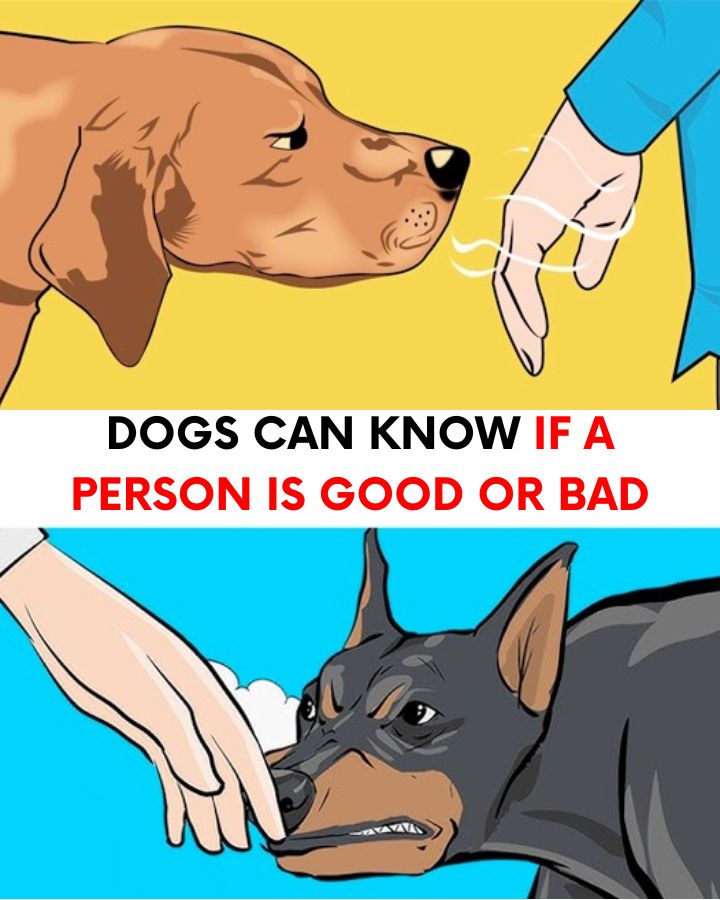Can dogs really tell who’s a good person and who’s not? According to science, the answer is yes. Studies show that dogs are incredibly intuitive and can actually pick up on human behavior in ways we might not expect. Their ability to sense bad intentions is more than just a gut feeling—it’s rooted in their instincts and their remarkable sensory awareness.

Dogs are not only loyal companions but also surprisingly perceptive observers of human actions and emotions. One fascinating study conducted by Japanese researcher Akiko Takaoka at Kyoto University set out to test how dogs respond to trustworthiness. The experiment had three parts: first, a dog’s owner pointed to a container that held food, and the dog eagerly followed the cue and found a treat. In the second round, the owner pointed to an empty container, and the dog was misled.
By the third time, when the owner pointed to a container again, the dogs refused to go, indicating that they no longer trusted the instructions. This experiment, which included 34 dogs, revealed that canines assess credibility based on previous experience, quickly learning whether a human can be trusted. And this level of social awareness isn’t just impressive—it’s something scientists plan to explore further in other species like wolves to determine if this trait developed through domestication.
Dogs also seem to pay close attention to how their owners interact with others. In another experiment, strangers were asked to help or ignore a dog owner who was pretending to struggle with a task. Later, those same strangers offered the dog food. Dogs were more likely to accept treats from the helpful people and completely rejected offerings from those who had been rude. Neutral strangers who didn’t get involved were still seen as acceptable, but those who were unkind? Absolutely not.
Beyond that, dogs can read our body language and facial expressions. A study published in Biology Letters by the Royal Society found that dogs are the only non-human species that can recognize both positive and negative human emotions using cues like tone of voice and facial signals. According to researcher Kun Guo from the University of Lincoln, dogs integrate multiple senses to make sense of what we’re feeling, proving just how emotionally intelligent they really are. This emotional sensitivity is one reason why animal-assisted therapy, or pet therapy, has become so popular.
In therapeutic settings, dogs help humans manage stress, anxiety, and even trauma. These sessions often involve a trained pet therapist and offer a safe space for emotional expression. Pet therapy is known to reduce loneliness, improve communication, boost memory, enhance motor skills, and promote overall emotional well-being. It’s particularly effective with children, the elderly, and individuals dealing with psychological or developmental challenges. But what about when a dog barks or acts aggressively toward someone seemingly at random? There’s always a reason behind that behavior. One common cause is unfamiliarity—dogs often bark when they encounter something or someone new. New scents, unusual body language, or strange behaviors can trigger a cautious reaction. Some people, without realizing it, can appear threatening to a dog. Wearing sunglasses or hooded hats, having a lot of facial hair, or even being tall and muscular can make a dog nervous. Speaking loudly, pointing, or staring directly into their eyes may also be perceived as a challenge. And while dogs aren’t typically bothered by perfumes or deodorants, the act of smoking near them can put them on edge. Dogs are also naturally protective of their humans. Their territorial instincts kick in when they feel their owner might be at risk, causing them to bark or even growl at strangers. Their protective behavior is often motivated by loyalty and love. Another powerful factor in a dog’s reaction to people is their memory. Dogs remember negative experiences, and if someone reminds them of a person who treated them poorly in the past, they might react defensively or even aggressively. To prevent bites, it’s important to train dogs from a young age to be calm around new people and environments. Early socialization helps them grow up feeling confident and secure. Rewarding good behavior and exposing them to different experiences gradually can help reduce fear and aggression. In the end, dogs are more than pets—they’re sensitive, intelligent animals that can sense emotions, recall past interactions, and even form judgments about human character. Their reactions are rarely random and often rooted in real-life experiences, instincts, and emotions.





